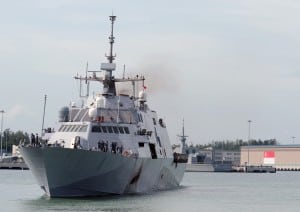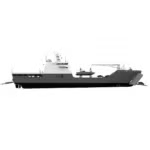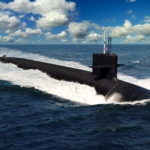
One of the two main propulsion diesel engines on the first Littoral Combat Ship (LCS-1), the USS Freedom, recently sustained “significant damage” from seawater contamination and will likely have to be rebuilt or replaced, according to the U.S. Navy.The Navy said in a statement Aug. 28 that it is trying to determine how a leak occurred in a seawater pump mechanical seal, which allowed seawater to enter the engine lube oil system. The leak was found July 11. On July…

 By
By 










